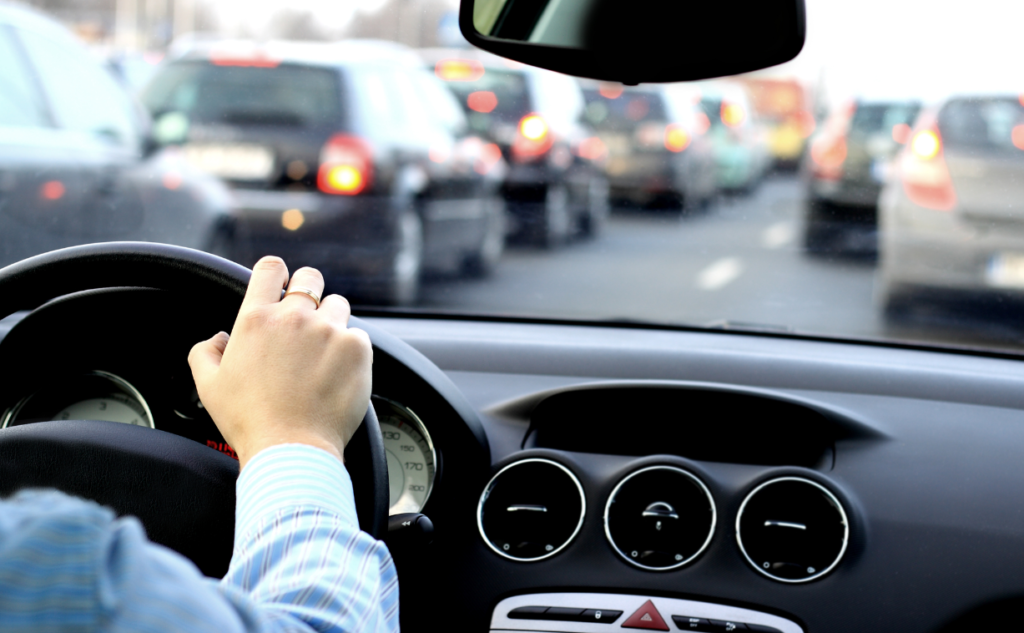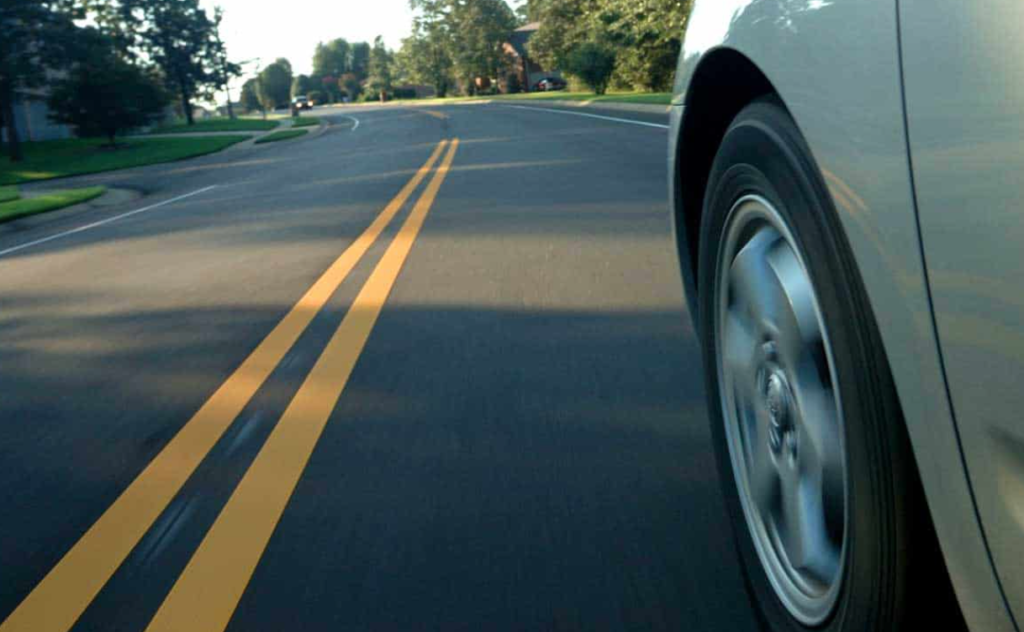A car’s ability to communicate its condition through noises is a vital aspect of vehicle ownership. Certain sounds can indicate problems, one of which is a grinding noise while driving but not brakes applied. By understanding these noises, we can diagnose and address potential issues before they escalate into costly repairs or even accidents.

Grinding Noise in Vehicles
A grinding noise in vehicles often presents as a harsh, metal-on-metal sound that is quite noticeable and typically implies mechanical wear or failure. It’s a noise that demands immediate attention due to the critical issues it often signifies.
Distinguishing Grinding Noise from Other Car Noises
It’s important to distinguish a grinding noise from other car noises like ticking, knocking, or squealing. Each of these noises indicates different potential issues. A grinding noise, especially when it occurs while driving without the brakes applied, usually signifies problems not related to the brake system.
A Quick Overview of Parts that Might Cause Grinding Noises
Various car parts could potentially cause a grinding noise while driving but not brakes applied. They might include components of the transmission system, the drive train, the wheel and tire assembly, or even certain parts of the engine.
Potential Causes of Grinding Noise When Driving without Applying Brakes
Grinding noise while driving but not brakes applied can result from a range of vehicle issues. These problems could be in the transmission system, drive train, wheel and tire, or even the engine. To narrow down and troubleshoot effectively, it’s vital to understand the potential causes.
Transmission System Issues
Low Transmission Fluid: The transmission system in your car relies heavily on transmission fluid for smooth operation. This fluid serves as a lubricant, reducing friction among the various moving parts, particularly the gears. When the fluid level drops, the gears can grind against each other, causing a harsh, grinding noise while driving but not brakes applied. Regular checks and top-ups of your transmission fluid can help avoid this issue.
Worn-out Transmission Gears: The gears in your transmission system are designed to engage seamlessly, ensuring the smooth transfer of power from the engine to the wheels. Over time, these gears can wear out and fail to engage perfectly, leading to a grinding noise when the car is moving.
Drive Train Issues
Worn-out CV Joints or U-joints: The drive train of your vehicle, consisting of parts like CV joints and U-joints, is essential for transferring power from the engine to the wheels. Wear and tear on these components can cause them to fail, producing a noticeable grinding noise while driving.
Differential Problems: The differential, a component that helps control the power sent to the wheels, can also contribute to the grinding noise if it becomes worn or damaged. Differential issues might include worn gears or inadequate lubrication, both of which can cause grinding noises.
Wheel and Tire Problems
Worn Wheel Bearings: Wheel bearings, an integral part of your vehicle’s wheel assembly, allow the wheels to rotate smoothly. When they wear out or become damaged, they can cause a grinding noise, especially when the vehicle is in motion but not applying brakes.
Damaged or Loose Wheel Components: Damaged or loose components in the wheel and tire assembly, such as a loose lug nut or a damaged hub, can also cause a grinding noise while driving. Regular inspections and proper maintenance can help catch these issues early.
Engine Related Problems
Broken or Damaged Fan Belt: The fan belt in your engine compartment, when damaged or broken, can cause a grinding noise. However, this is often accompanied by other symptoms, like a malfunctioning cooling system or an overheating engine.
Problems with Water Pump or Alternator: Both the water pump and alternator can create a grinding noise if they suffer from failing bearings or other forms of damage. These components play essential roles in engine cooling and electrical power supply, respectively, and any damage can have serious implications for vehicle performance.
Diagnosing Grinding Noise
Ignoring a grinding noise while driving but not brakes applied, can lead to more significant issues. Diagnosis can often be achieved through a few steps.
The Significance of Immediate Diagnosis
Ignoring the grinding noise can lead to more severe and costly damage. Immediate diagnosis not only saves money but also ensures the safety of the vehicle.
Basic Steps to Locate the Source of Grinding Noise
The process to identify the source of the grinding noise includes observing when the noise occurs, and visual inspection of the potential parts responsible.
Professional Diagnosis: When to Consult a Mechanic
In some cases, a grinding noise might indicate a severe issue that requires a professional mechanic’s skills. If the cause isn’t apparent or if the repair seems too complicated, it’s time to consult a professional.
Dangers of Neglecting Grinding Noise
Neglecting a grinding noise can lead to severe problems such as total transmission failure, a breakdown in the drivetrain, or even wheel and tire assembly issues – all of which can be dangerous.

Troubleshooting and Fixing Grinding Noise Issues
DIY Repairs
Not all grinding noises require a trip to the mechanic. Here are some DIY repairs you can try.
Transmission System Repairs: This might include topping off the transmission fluid or even replacing worn-out gears.
Drive Train Repairs: This could involve replacing worn-out CV joints or U-joints.
Wheel and Tire Repairs: You could potentially replace worn wheel bearings or tighten loose wheel components.
Engine-Related Repairs: If you’re mechanically inclined, you might be able to replace a damaged fan belt or repair issues with the water pump or alternator.
Professional Repairs: When to Seek Professional Help
While some issues can be fixed at home, others require professional help. If the problem involves the transmission system or engine components, it might be better to have these repaired by a professional mechanic.
Preventive Maintenance to Avoid Grinding Noise
The best way to avoid grinding noise while driving but not brakes applied, is through regular maintenance. Ensuring that your vehicle has sufficient transmission fluid, regularly inspecting your wheel and tire assembly, and keeping an eye on your engine components can all help prevent the grinding noise.
Case Studies
These case studies demonstrate some practical examples of grinding noise issues and their solutions.
Transmission System Issue: In one case, a driver noticed a grinding noise while driving without applying the brakes. The mechanic’s inspection revealed that the vehicle was low on transmission fluid, causing excess friction between the transmission gears. Refilling the fluid resolved the grinding noise issue.
Drive Train Problem: Another driver reported a grinding noise emanating from their vehicle. This time, the culprit was a worn-out CV joint in the drive train. The joint was replaced, effectively eliminating the noise.
Wheel and Tire Issue: A driver reported a persistent grinding noise when their vehicle was in motion. The mechanic traced the problem to a worn-out wheel bearing. After replacing the bearing, the grinding noise disappeared, and the vehicle returned to normal operation.
Conclusion
In conclusion, grinding noise while driving but not brakes applied, should never be ignored. It’s often a sign of significant issues that need immediate attention. Regular maintenance and timely repairs can ensure that your vehicle remains safe and operational, saving you from expensive repairs and potential accidents.
FAQs:
What is the most common cause of a grinding noise while driving, but not when brakes are applied?
The most common cause of grinding noise while driving but not brakes applied is usually related to the transmission or drivetrain. This can include issues such as low transmission fluid or worn-out components like CV joints or U-joints. However, other factors like worn wheel bearings or engine-related problems can also result in grinding noises.
What does a grinding noise from my car typically indicate?
A grinding noise typically indicates mechanical issues where metal-to-metal contact or high friction is occurring. This could be due to low fluid levels, worn-out or damaged components, or even misalignments. While these noises can occur in any part of the car, they’re most common in the transmission, drivetrain, wheel assembly, and engine.
Can I still drive my car if it’s making a grinding noise?
While it might be tempting to ignore a grinding noise and continue driving, it’s not advisable. The grinding noise is a sign of mechanical problems that can escalate into serious damages if left unattended. It’s best to have the car checked and repaired by a professional to prevent further damage.
How serious is a grinding noise from a vehicle’s wheels?
A grinding noise from a vehicle’s wheels is a serious concern and should not be ignored. It’s often a sign of worn or damaged wheel bearings, which, if left untreated, can lead to wheel failure and a potential accident. Immediate professional inspection and repair are advised.
Can low transmission fluid cause a grinding noise while driving?
Yes, low transmission fluid can cause a grinding noise while driving. Transmission fluid serves as a lubricant for the transmission gears. If the fluid level drops, the gears can rub against each other, resulting in a grinding noise.
Can a problem with the engine cause a grinding noise while driving?
Yes, engine-related issues can cause a grinding noise while driving. Components like the water pump, alternator, or fan belt can produce grinding noises when they’re damaged or failing.
How do I diagnose the cause of a grinding noise in my car?
While some basic causes of grinding noise can be diagnosed at home, such as checking for low transmission fluid, many causes require professional diagnosis. Issues like worn-out transmission gears, differential problems, or engine-related problems are best diagnosed by a professional mechanic. Therefore, it’s always recommended to consult a mechanic when your car makes a grinding noise.